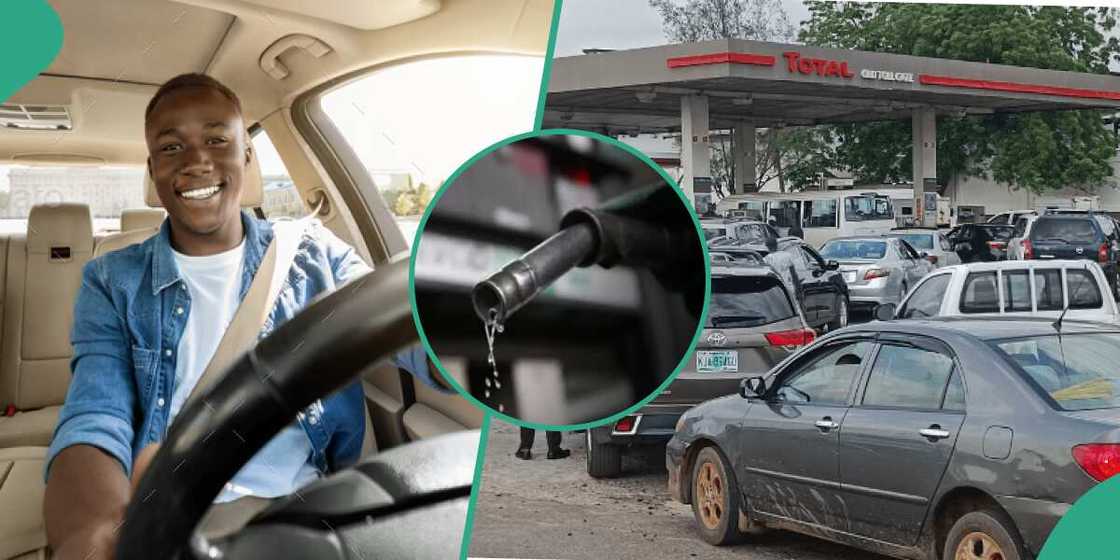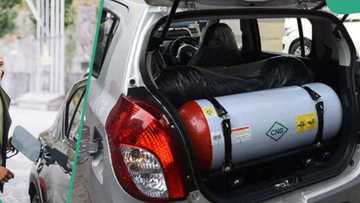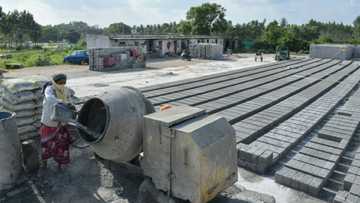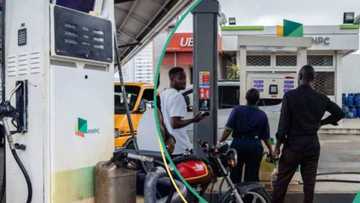10 Working Tips to Reduce Your Car's Fuel Consumption Amid High Petrol Price
Driving to various destinations is meant to be convenient and hassle-free. However, the current economic situation has made it less appealing due to the significant impact of rising petrol costs on your wallet.
PAY ATTENTION: The 2024 Business Leaders Awards Present Entrepreneurs that Change Nigeria for the Better. Check out their Stories!
The persistent petrol scarcity and escalating pump prices have compelled numerous car owners to limit their outings with their vehicles.
Adhering to these tips by Mobil can efficiently decrease your fuel usage, save your money, and contribute to fostering a more sustainable and economical driving routine.

Source: UGC
Maintain proper tyre inflation
Underinflated tyres create greater rolling resistance while driving. This increased resistance leads to more friction and higher fuel consumption with each kilometre travelled. If your tyres are underinflated by 10 psi, your fuel efficiency could decrease by as much as 10%.
Reduce excess weight in your trunk
If you tend to store various items in your trunk along with essential emergency supplies, reconsider what you keep there. Every additional 50kg of weight your car carries can increase fuel consumption by 2%.
Use air conditioning (A/C) while driving
Driving with the windows down at speeds over 80 km/h creates significant wind resistance, leading to higher fuel consumption. Contrary to popular belief, it is more fuel-efficient to use air conditioning in this scenario.
Tunji Omotosho, a car mechanic told Legit.ng that using air conditioning in a car can impact fuel consumption differently based on driving conditions.
He said:
"At higher speeds, AC can be more fuel-efficient than driving with windows down, while at lower speeds, the opposite might be true. Advances in automotive technology continue to improve the efficiency of AC systems, reducing their impact on fuel consumption."
Maintain moderate speeds
While driving on the highway, your engine must work harder to counteract wind resistance, resulting in up to 15% more fuel consumption at 100 km/h and 25% more at 110 km/h.
However, driving below 50 km/h is not ideal either, as the engine shifts to a lower gear and uses more fuel.
Therefore, maintaining a steady speed between 50 and 90 km/h on the highway is optimal for fuel efficiency.
Accelerate smoothly
To improve fuel economy, avoid revving your engine to high revolutions per minute (RPM). Your engine consumes less fuel when operating at lower RPMs, making it more efficient and accelerating smoothly and steadily.
Avoid aggressive braking
Braking hard increases fuel consumption since you will need to accelerate again afterwards. This is particularly relevant if you follow the vehicle in front of you too closely. Additionally, tailgating is hazardous and should be avoided.

Read also
“We will stop subsidising”: FG speaks on powering 3 million CNG-powered vehicles in 3 years
Maintain a steady speed in top gear
For automatic cars, use cruise control to maintain a consistent speed. If you're driving a manual car, shift to a higher gear when appropriate.
In both cases, the engine operates at lower revolutions per minute (RPM), reducing fuel consumption.
Shola Ogunbiyi, an auto blogger told Legit.ng that maintaining a steady speed improves fuel consumption by reducing the frequent acceleration and braking that increases engine workload.
He said:
"This consistency allows the engine to operate more efficiently, minimizing fuel waste and lowering emissions. Using cruise control on highways can help achieve a steady speed and enhance fuel economy."
Adopt predictive driving techniques
Anticipate the road ahead and plan your actions accordingly. Instead of abruptly braking to a complete stop, gradually slow down as you approach a red light.
When nearing the base of a hill, begin accelerating gradually rather than waiting until you are directly at the incline. Avoid rapid accelerations from a complete stop or while climbing a mountain, as this increases fuel consumption.

Read also
CNG: Man who converted his car to use gas shares how to drive car in Nigeria without petrol
Plan your commute around rush hour
Stop-and-go traffic places significant stress on your engine, leading to higher fuel consumption. Whenever possible, carefully plan your commute to avoid the heaviest peak traffic times.
Minimize idle time
If you find yourself waiting for more than three minutes, it's advisable to turn off your engine. Even when stationary, leaving the engine running consumes fuel unnecessarily.
Lastly, regular car servicing is essential for preserving your engine's fuel efficiency. Engine components function harmoniously, but without proper maintenance, sludge and corrosion can accumulate between them, hindering smooth operation.
Engine oils play a crucial role in this regard. High-performance engine oils not only reduce friction but also combat sludge buildup, thereby enhancing fuel economy.
Important reasons to convert petrol engine to gas
In a related article, Legit.ng identified the significant benefits of converting your petrol engine vehicle into a gas-operated engine, especially now that petrol prices have skyrocketed.
Compressed natural gas (CNG) has emerged as a promising alternative to traditional petrol engines in the quest for sustainable and eco-friendly transportation.
Vehicles powered by CNG offer numerous advantages over their petrol counterparts, ranging from reduced greenhouse gas emissions to lower operating costs and enhanced engine longevity.
PAY ATTENTION: Stay Informed and follow us on Google News!
Source: Legit.ng





